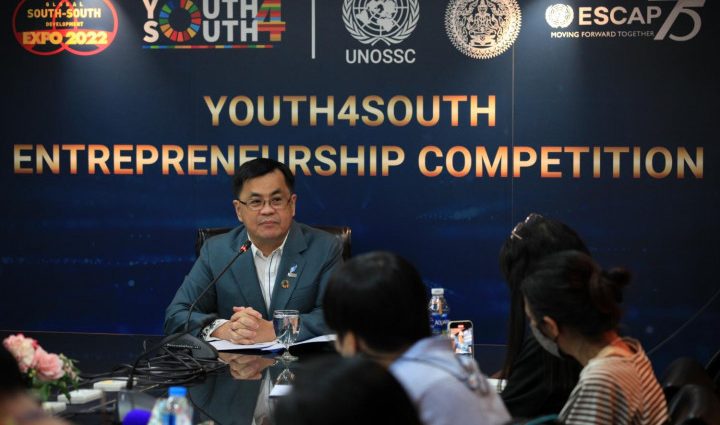Youngsters turn hand to tackling social problems in post-Covid era.

As growth seeks to become more sustainable, business practices are transforming whereby profits are no longer the main priority of consideration.
The development of a business model that seeks to solve social problems or assist disadvantaged groups is becoming a significant pillar for conducting future business.
The concept of social-based resolution entrepreneurship has been widely supported by international agencies to promote a pathway to achieve the Sustainable Development Goals (SDGs) under the United Nations framework.
This concept was highlighted at the Global South-South Development Expo 2022 (GSSD Expo 2022) hosted by the government and the UN’s Economic and Social Commission for Asia and the Pacific (Escap) last month at the Queen Sirikit National Convention Center.
The event was held to support post-Covid recovery efforts, particularly in addressing extreme poverty, food insecurity, vaccination inequality and other global challenges through South-South and triangular cooperation.
The role of business in society
As part of the forum, the “Youth4South Entrepreneurship Competition” was held to discover business models showcasing how young entrepreneurs could develop ideas that address social problems.
Wilert Puriwat, dean of Chulalongkorn Business School, said the competition showed how doing business will change from a profit-oriented to a social solution-oriented purpose.
“It is a good opportunity for young Thai entrepreneurs to catch trends for developing their own businesses to tackle social problems,” he said.
Assoc Prof Wilert said the competition also proved that doing business through social-based resolution is a kind of win-win solution in that entrepreneurs could make money from the business model while their clients’ problems are also fixed.
He cited a business model of preserving tomatoes as an example, saying an entrepreneur from Kenya worked with a local community to build a cooling warehouse powered by solar cells.
At the same time they created an application as a channel that buyers and sellers could set their prices they see fit, he said, saying this type of business model is a way to help preserve the product’s quality while cutting out the middleman who buys the product at a lower price from farmers.
Assoc Prof Wilert said he was also impressed by the business model of a group of young entrepreneurs who developed an application to assist children living with stress and depression.
It was an example of using technology and innovation to help fix social problems while promoting sustainability, he said.
To help young people achieve success with social business ventures, Assoc Prof Wilert said that both universities and the government must play a greater role in supporting university students.
He cited his university as an example. Chulalongkorn University has provided an experiential learning opportunity for its students through the project of Students in Free Enterprise (Sife), an international non-profit organisation that works with university students globally.
The project has encouraged students to work closely with local communities to use appropriate business models to develop local products and marketing channels, so local communities benefit.
Success story
Assoc Prof Wilert said his student team won a competition award at the Sustainability Expo at Queen Sirikit National Convention Center last month with his team helping a lotus farmer group in the Central Plains province of Nakhon Sawan.
The team helped the farmers develop and store lotus seeds so they could be kept for a longer period. They also showed ways that the farmers could boost their business operations through methods such as marketing and improved accounting.
“We have great seeds in the country,” Assoc Prof Wilert said of the students who earned awards.
“So many Thai students won international awards. They have great talent and language skills, but the problem is that they don’t have connections to link their talent to help solve social problems,” he said.
Some farmers need their help to create business models so that they can sell rice at a better price through innovation and technology.
“We want to see the young generation help create this kind of business model,” he said.
To develop themselves, he said young Thai entrepreneurs should take an opportunity to join international business model competitions to help further open their minds and learn more.
They will have the chance to make more connections and network with international entrepreneurs, Assoc Prof Wilert said, adding this will help them accumulate experience and skills.
“My duty is to push our students to join international [business model] competitions in the future,” he said.
“Giving something good to society should not only be done when a company has already succeeded in doing business. It may be better if a company first starts doing its business with a mindset of fixing social problems,” he said.

